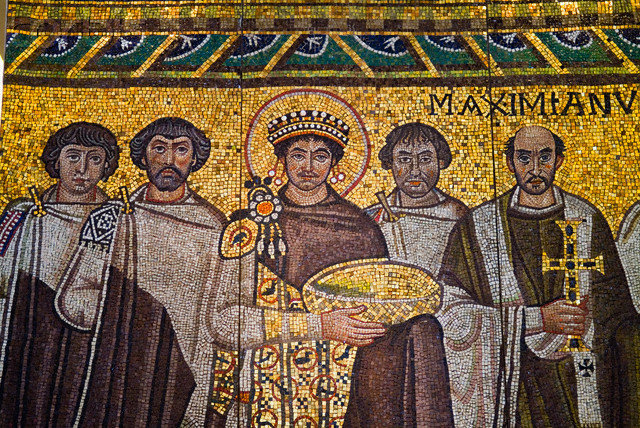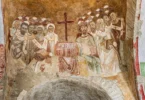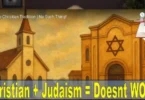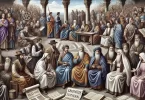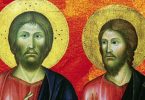By Dr M D Magee
Christians consider it proof of the virtue of the fifth and sixth century bishops regarding the preservation of classical knowledge that Greek culture could still be an issue in the sixth century. In truth, by then large numbers of classic books had already disappeared forever. The ones spoken of by Christians are those which they declared compatible with Christianity for one reason or another. The intolerance of Christians is illustrated by the plot by Cyril of Alexandria to murder the fashionable and virtuous Neoplatonist philosopher and daughter of the “last member of the Library of Alexandria”, Hypatia. It is the Cyril who succeeded Theophilus. He ordered a gang of monks to murder her by hijacking her carriage, mercilessly killing her then stripping her naked body of its flesh using broken tiles or oyster shells—a monstrous deed even Christians cannot deny.
The final death blows to Pagan culture however came from Justinian the Great, Emperor from 527-565 AD. He is considered great because:
- he had two great commanders, Belisarius and the eunuch, Narses, who re-conquered large parts of the Western Empire from the Germans for him
- he codified Roman law (but himself ignored the rule of law—blatantly robbing friend and foe alike and encouraging his officials to extortion)
- he spent fortunes on building churches to the glory of God
- he persecuted Pagans and heretical Christians alike.
While doing all these wonderful things he forgot the proper management of the economy and did far more damage to civilisation than barbarians ever did. The empire was left ruined, its administration corrupt, the countryside abandoned and the cities full of beggars who waited in vast numbers for alms from the state coffers.
When Justinian closed the Neoplatonic Academy in Athens (529 AD), he closed the last of the Pagan schools, the large Neoplatonic school in Alexandria having already gone Christian in 517 AD. It was closed because it was anti-Christian! This school was the last Pagan school in the whole of the Christian Empire—but the “great” Christian Emperor thought it too dangerous to tolerate and closed it.
Christians were happy to retain some classic writers—Homer because Christians saw allegories in his work, Plato and Aristotle for their philosophic value and some poetic and rhetorical works were kept for teaching style. Otherwise Paganism had gone. Chadwick says there was no prohibition on the expression of Pagan thought and no restriction imposed on the diffusion of Pagan literature. Since neither Pagan thought nor Pagan literature could be taught, neither was likely to be a problem. It is like saying people can watch whatever they like on TV, but there will be only one channel—the Christian channel.
Source: http://www.renegadetribune.com/justinian-the-great/

